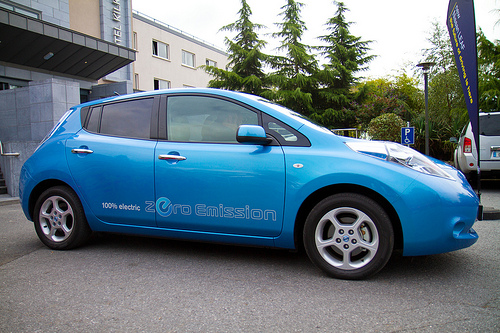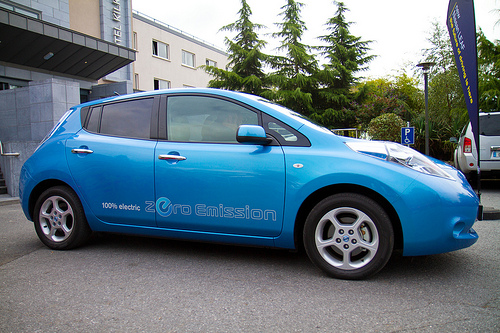 Will car buyers get the message?Photo: Tom LafteryOne of the biggest knocks against electric cars, other than their current range, is the rather steep upfront cost due to the price of the battery.
Will car buyers get the message?Photo: Tom LafteryOne of the biggest knocks against electric cars, other than their current range, is the rather steep upfront cost due to the price of the battery.
Of course, you’re essentially pre-paying much of your fuel costs for the life of the car. But that’s a hard message to get across to a potential buyer contemplating forking over $41,000 for a Chevrolet Volt or $33,000 for a Nissan Leaf before state and federal incentives.
However, rising gasoline prices — now topping $4 a gallon in the San Francisco Bay Area — may finally drive the message home that electric cars, despite the expense of the first generation mass production models, are a hedge against an uncertain fuel future. (Not to mention environmental catastrophe.)
In a new report on electric cars and the smart grid, GTM Research includes a handy chart listing average gasoline prices (as of Jan. 2011) in the United States and Europe, along with the price of electricity and the savings from trading in a gas-guzzler for an electron-sipper.
In the U.S., drivers of battery-powered rides can save the equivalent of $2.05 a gallon, assuming gas prices of $3.25 a gallon and electricity rates of 12 cents a kilowatt-hour. Of course, gas and power prices in the U.S. vary dramatically from state to state. In California, both are among the highest in the land. But so are subsidies for solar panels, which can be used to charge your car, a further hedge against peak oil.
But in Europe the savings are particularly dramatic. In nuclear-powered France, the GTM snapshot shows electricity rates at 19 cents a kilowatt-hour while petro prices are at $7.61. Switching to an electric car would save the equivalent of $5.71 a gallon.
Electricity rates in Spain, which has been on a renewable energy building boom in recent years, are just seven cents a kilowatt-hour. Going electric would take the equivalent of $5.20 off the $5.90 price of a gallon of gasoline.
“The German government recently announced an objective of having one million EVs on that country’s roads by 2020,” wrote David J. Leeds, the report’s author, who cited a German utility industry study that concluded renewable energy could power 50 million electric cars by 2020.
In Copenhagen, where petro prices were $6.89 as of Jan. 21, a Danish utility plans to provide free power to electric drivers for two to three years, according to the report.
“In terms of the consumer experience and encouraging wider adoption, not having to pay for fuel appears to be a very savvy strategy,” wrote Leeds.
Just don’t expect to see Huge Chavez trading in the presidential limo for a Leaf: Gas prices in oil-rich Venezuela are about six cents a gallon.




